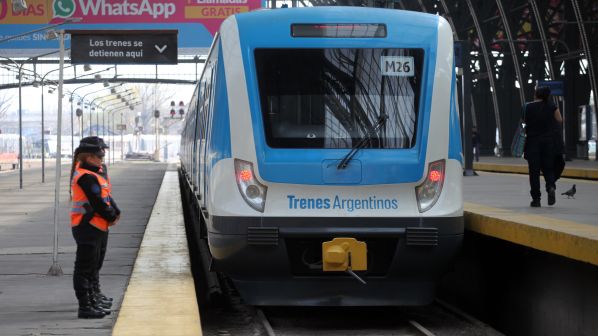THE World Bank’s board of directors has approved a $US 347m loan to upgrade infrastructure and improve service levels on Argentina’s Mitre Line, the 180km 1676mm-gauge commuter railway running from Retiro station in Buenos Aires, which transports more than seven million passengers annually.
The $US 382.77m project will finance the expansion and renovation of the Retiro station rail yard; the construction of two new stations at Facultad de Derecho, which will provide an interchange with the metro network, and an elevated station in Bancalari to connect with the Victoria - Capilla del Señor and Villa Ballester - J L Suarez - Zarate non-electrified lines; the renovation of 16 stations; improvements to the electrification system; and the renewal of the Tigre branch line, among other works.
The Buenos Aires - Mitre Passenger Railway Line Modernisation Project seeks to improve urban transport to benefit low-income users, women and people with disabilities who live in the Buenos Aires Metropolitan Area and regularly use public transport to travel to work or for other activities. The financing is a variable margin loan, with a 32-year maturity period and a seven-year grace period.
To help combat the Covid-19 pandemic, the project includes measures to improve ventilation in trains and track occupancy levels in real-time to encourage social distancing.
The project will also promote low-carbon transport by discouraging the use of private vehicles and favouring the integration of different modes of sustainable transport, such as bicycles and the Metrobus. It will also adopt standards for the design of climate-resilient infrastructure and will incorporate disaster risk management systems.
“This is a very important step forward in the path set by president Alberto Fernández, and started by [previous transport minister] Mr Mario Meoni, to modernise our passenger railway transport,” says Argentina’s transport minister, Mr Alexis Guerrera, who was sworn in hours before the funding was announced. “The train is one of the most used means of transportation by Argentine men and women, and thanks to this financing we are going to be able to initiate an historic transformation in the Mitre line that will improve the quality of life of millions of people.”

